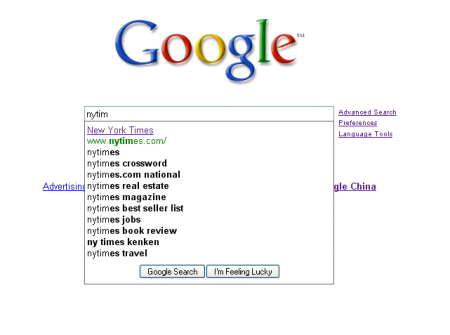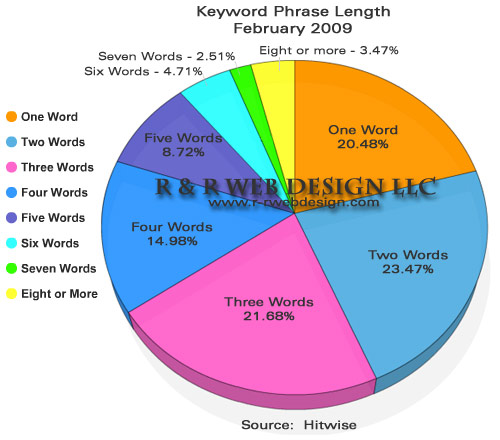What Are Search Terms And Keywords: How Do People Find Your Content?

I told myself last year that I will no longer write hubs that are specific to hubpages. Though this topic is widely searched on the internet and is also extensively covered, this hub is for the newbies who are yet to understand how search and keywords work. I decided to do this because I have come to realize that many people on the internet and here on HP have no idea of how search works and how relevant keywords are.
As content writers, many of us are concerned about traffic and traffic sources. If you are on the internet to make money you cannot do so without traffic. If you are a contributor to any revenue sharing site such as Hubpages, you want to know that:
(1) You are getting external traffic, or what we like to call organic traffic
(2) Your traffic sources are not blacklisted or dubious
(3) Search engines can find you

What are search terms and keywords?
Search Terms
If you have been on the internet for any period of time you will have heard of these things. Search terms are simply, “the combination of words people type into their browser search when trying to find information or answers”.
Anectdote:-
My brother bought a phone with internet capabilities a couple of months ago. It wasn’t his first internet capable phone but it was the first time he showed any interest in using the internet. He wanted to download music and thought that all he had to do was go on the internet and the music would be there ready to download. Therefore, I asked him the names of the songs and he could not tell me. He said that once he gets on the internet he would see the songs he wanted. I proceeded to ask him how he would find that list and he said they would be there because the manual said he could download music unto his phone. It was a very confusing conversation.
I explained to him that is not how the internet works. Everything is stored somewhere but in order to find it you must search for it by typing in whatever you need. If you want to find Mariah Carey songs, you must type in “Mariah Carey music.”
Just like my brother, many people do not realize that without search terms content cannot be accessed.
Keywords
Keywords are the words placed in content that match the search terms people search for. A search term does not always contain 100% keywords, however, all search terms contain keywords while some search terms contain only keywords.
Confused?
If you type "a black dog with white spots" and/or "black dog white spots" into your browser search, you will get the same results for both. Though "a" is a word which can be searched by itself, when used as an article the search engine filters it. The same goes for prepositions.
The only way the engine will search those words is unless you put them in quotes. That is why we can use the words the, and, is, a, to in our tiles for keyword terms which do not contain them.
My Title only has two keyword terms: What Are Search Terms and Keywords: How do people find your content? The search engines will not send traffic to me about people. The words what, are and and are not relevant to search.
Do you belive that search terms and keywords are relevant to making money online?
The relationship between search terms and keywords
As explained before, without search terms, whether it is one or multiple words, people cannot find your content.
Without keywords, search engines cannot place your content.
Search engines use search terms to match keywords placed in content in order to send the searcher to your content. In other words, send traffic to you.
Both search terms and keywords are important to gaining traffic and in turn, make money. One cannot exist without the other and you the content creator cannot earn without them.
Why do you get traffic from Bing and Not Google?
The question was asked recently, from where do you get the most traffic. The asker, somehow, seemed to not understand how search engines worked. The real question is: Why do we get traffic from some sources and not others?
The simple answer, as I explained in my answer to the question is: Search engines use search terms. If someone doesn’t type a search term the engine cannot find it. If no one is searching for your content in Google, then Google cannot send traffic there.
If you are getting traffic from Yahoo and not Google it could be one of two things:
a) You are not indexed by Google
b) Your topic is not being searched by the Google search engine.
Search engines save the keywords used in search terms in order to send traffic to content.
Google official search data
Where
| Age 15 - 24
| Age 25 - 35
| Age 35 - 44
| Age 45 - 54
| Age 55 and over
|
|---|---|---|---|---|---|
Worldwide
| 26%
| 26%
| 21%
| 14%
| 13%
|
China
| 27%
| 32%
| 25%
| 10%
| 6%
|
Singapore
| 28%
| 31%
| 21%
| 13%
| 8%
|
Australia
| 19%
| 20%
| 20%
| 18%
| 23%
|
New Zealand
| 20%
| 18%
| 19%
| 18%
| 24%
|
Japan
| 15%
| 19%
| 23%
| 18%
| 26%
|
India
| 37%
| 38%
| 16%
| 6%
| 3%
|
Data by ComScore posted September 2013
Secret Searches
The below tables show searches which people conduct when they think no one is looking based on survey, according to Searchenginewatch.com
Who Searches
Type
| How many
|
|---|---|
Men
| 67%
|
Women
| 60%
|
Ages 18 - 35
| 78%
|
Over 35
| 59%
|
What they search for
Search Data
| Quota
|
|---|---|
Health related
| 38%
|
Employment
| 30%
|
Sex
| 25%
|
Weight loss
| 16%
|
Former spouses
| 14%
|

Google Annual Searches
Year
| Annual Number of Google Searches
| Average Searches Per Day
|
|---|---|---|
2012
| 1,873,910,000,000
| 5,134,000,000
|
2011
| 1,722,071,000,000
| 4,717,000,000
|
2010
| 1,324,670,000,000
| 3,627,000,000
|
2009
| 953,700,000,000
| 2,610,000,000
|
2008
| 637,200,000,000
| 1,745,000,000
|
2007
| 438,000,000,000
| 1,200,000,000
|
2000
| 22,000,000,000
| 60,000,000
|
1998
| 3,600,000 - *Googles official first year
| 9,800
|
Google official annual search data

How do I apply keywords to my content?
A few years ago, keyword placement was of the utmost importance and content writers had to calculate how many keywords they needed to place within the article in order to rank highly in search. That method has since become obsolete because many were putting too many in their articles. This was known as keywords stuffing and so Google changed the rules. It is recommended that you write in a conversational tone; write naturally about your subject and your keywords will come naturally.
Now all you need to do is figure out if your subject is widely searched and just write away
Google has an easy way for you to figure that out. What used to be called the Adwords Keyword Tool is now known as Adwords Keywords Planner. The tool was created with advertisers in mind but it is a good way to find keyword ideas for content.
It’s pretty simple to use. All you need to do is input your idea then click the “get ideas” button in blue, then choose the “keyword ideas” tab.
This is what I do
I never search for topics to write. All my subjects come to me by either inspiration or previous knowledge. Everything I write about, is something I am passionate about. If you have read my work before you will notice my easy style of writing, just like you see here. This is my style and has always been, even before Google suggested it. Maybe that’s why I was never penalized by the system…lol
Here is my method
- An idea pops into my head while doing something
- I run to jot it down
- I use my Keyword planner to make sure it has more than 1000 Global monthly searches. Less than that and I blog it.
- I check to see if the subject is widely covered online by typing a phrase in search. If it has more than 2,000,000, I may scrap it. A hub like this has way more than that but this was written with HP newbies in mind.
- If it’s something which requires no research and I am really excited about it I write it there and then
- If the subject require additional research I do so and take notes
- I then sit and write my hub then I transfer it to Hubpages.
The conclusion is...
- Know what keywords are and how to use them.
- Know what search terms are and how relevant they are to you
- Never be a slave to keywords. Your subject will speak for itself.
If your content is within the Google guidelines, contains keywords based on search terms provided by search engines then you will have no problem getting traffic.
Just remember that writing about extensively covered subjects will thin the traffic quota so you will not get the traffic you desire. What I mean is this: The more content written about any one subject will end up getting less traffic because Google must now monitor how much traffic to send to each content.
Also, content which is already covered a zillion times may not get you any traffic at all due to the older content which has already developed a reputation in the eyes of search engines. In order to compete with these already written articles you must provide new and relevant information.
Be yourself and your readers will love you. Readers who like your work will either come back or recommend you to friends and family.
© 2013 Carolee Samuda








